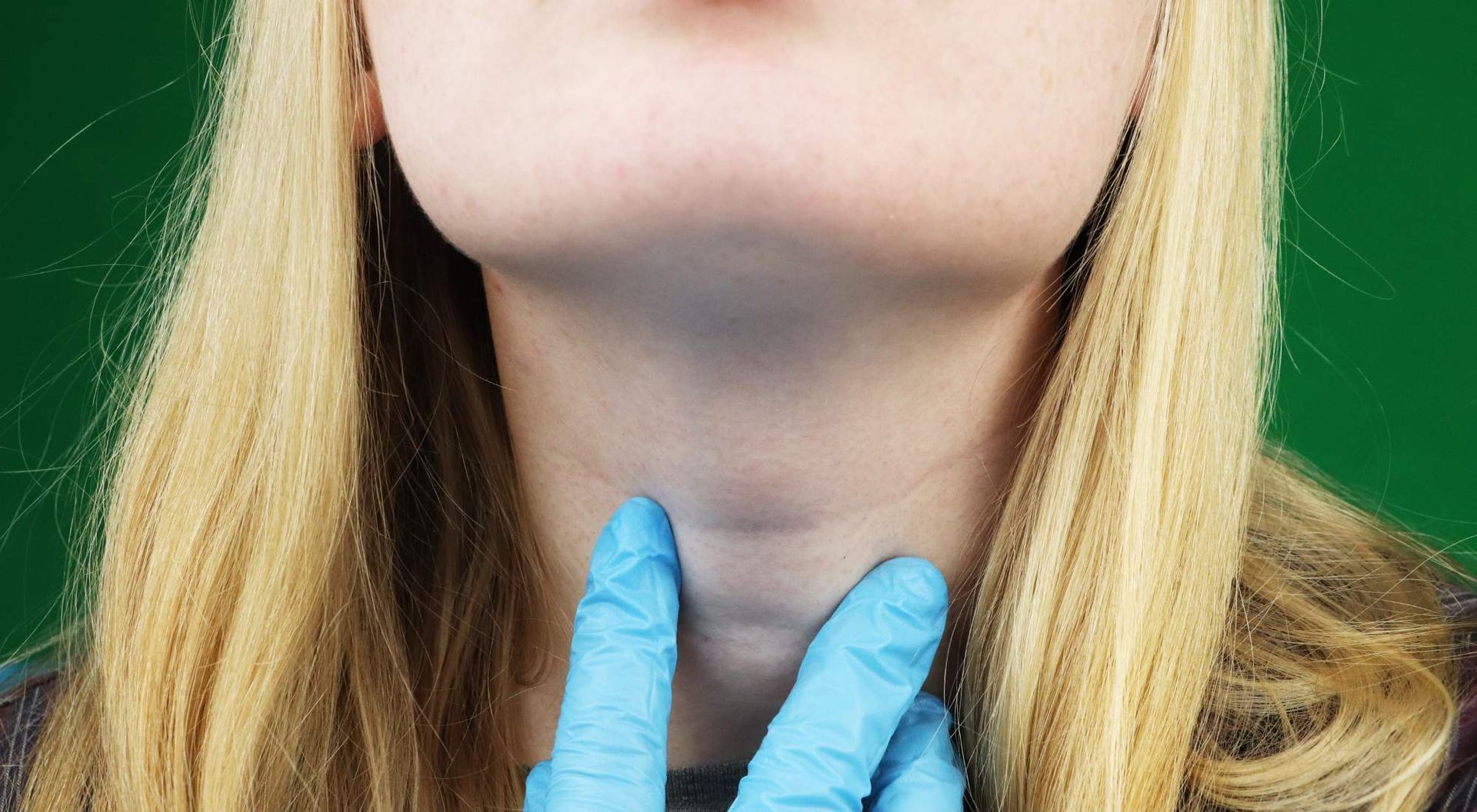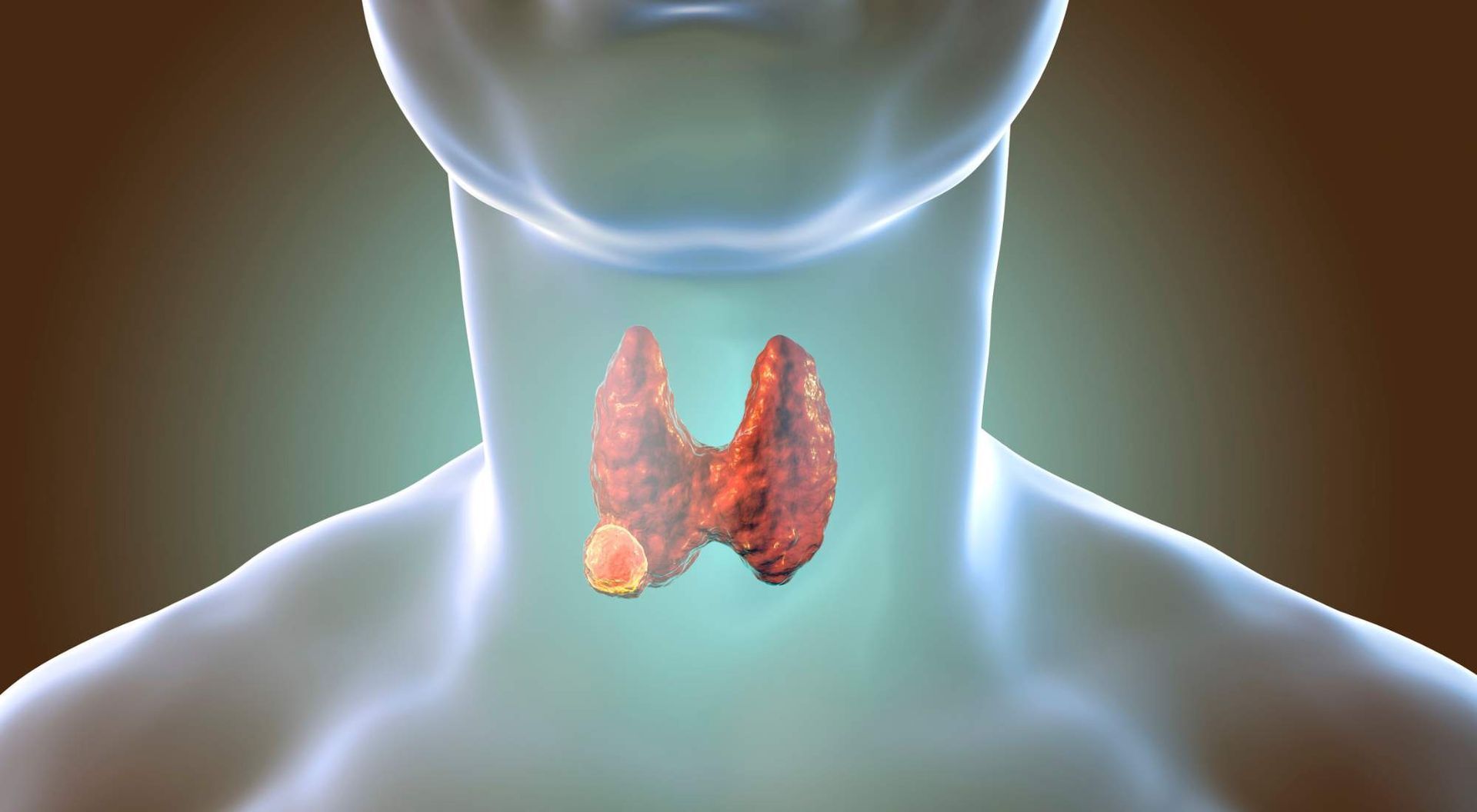Understanding the Complex Link Between Folic Acid and Thyroid Function
"The content below is not intended to be a substitute for professional medical advice, diagnosis, or treatment. Always seek the advice of your physician or other qualified health provider with any questions you may have regarding a medical condition."
Essential nutrients play an enormous role in our overall health. When these nutrients are not taken in from diets or supplements, our bodies do not optimally function.
Nutrient deficiencies are often a factor in the development of illnesses, if not the true culprit.
Folic acid, or folate, is one of these key nutrients in our diet. When we do not take in a sufficient amount of folate, it can affect thyroid function.
Use the following suggestions to understand the role of folic acid in your health, thyroid function, and the complex relationship between the two.
Table of Contents
Does Folic Acid Affect Thyroid Levels?
Yes.
Nutrients such as folic acid play a role in helping the thyroid function as it should. When a nutrient is lacking or missing, it can affect thyroid levels and body functioning.
The Complex Link Between Folic Acid and Thyroid Levels
Folate (Vitamin B-9, Folic Acid) is important in red blood cell formation and for healthy cell growth, division, and function. It also plays an essential role in DNA synthesis.
The relationship between folic acid and thyroid functioning is complex but may be summed up in a simple explanation:
- Low folic acid levels can lead to an under-active thyroid gland, or hypothyroidism.
- Hypothyroidism can lead to low folic acid levels.
Low folate levels may also lead to other health conditions and concerns.
Continue reading to further understand the importance of folic acid, thyroid levels, and optimal health.
What Is Folic Acid?
Folate is the natural form of Vitamin B9 and is naturally found in many foods. It is important in numerous bodily functions.
Folic acid is the synthetic form of folate or vitamin B9 and is added to foods or provided in the form of supplements.
Folic acid in supplement form has been found to be better absorbed in the body than from food sources.
What Does Folic Acid Do in the Body?
Folic acid is important in many daily functions in our bodies:
- It is vital to making red and white blood cells in bone marrow.
- Red blood cells carry oxygen to all tissues in our bodies.
- White blood cells fight against infections and viruses.
- It helps to convert carbohydrates to energy.
- It supports RNA and DNA formation.
- It works with Vitamins B12 and C to help the body break down, utilize, and create new proteins.
- Each new cell requires folic acid in their formation, such as:
- Blood cells
- Brain cells
- Skin, hair, and nails
- Folic acid is especially important during early pregnancy because it helps the neural tube develop which later forms the brain and spine.
- It is the only form of folate that's been shown to help prevent serious birth defects called neural tube defects (NTDs).
- NTDs happen in the first few weeks of pregnancy, often before pregnancy is evident.
- It plays a key role in breaking down homocysteine, an amino acid that can harmfully impact the body if present in high amounts and can lead to heart disease.
Other Players in Thyroid Function Associated With Folic Acid
Hypothyroidism is the condition that occurs when your thyroid gland does not produce enough thyroid hormone to support your body’s metabolic needs and functioning.
Those with hypothyroidism often will develop low folate levels. Low folate levels, in turn, may then increase the levels of the amino acid homocysteine.
If not broken down, homocysteine can predispose people to blot clots, stroke, heart attack, and general cardiovascular diseases.
After consumption from your diet, folate needs to be converted into a usable form in the body from folate to L-methyl folate — this is the job of the liver.
However, hypothyroidism reduces the body’s ability to produce L-methyl folate. This dysfunction is due to hypothyroidism specifically decreasing the activity of the enzyme methylenetetrahydrofolate reductase (MTHFR), which helps to produce L-methyl folate.
The problematic cardiovascular events are the results of not having enough L-methyl folate to reduce homocysteine levels.
How Much Folate Do You Need?
As daily diets and intake widely vary amongst a general population, the amount of folate consumed from dietary sources may also be vastly different.
As a generalized guideline, the Recommended Daily Allowance (RDA) of folate for teens and adults is 400 micrograms (mcg) per day.
Adult women who are planning a pregnancy or could become pregnant should aim to take in 400 to 1,000 mcg of folic acid a day.
Request a nutrition consultation today to see if additional measures may be necessary to increase your folate intake.
How Are Folate Levels Measured?
Folate levels can be measured by a simple blood draw at your doctor’s office, local laboratory, or hospital.
It is vital to fast at least eight hours before the blood draw — no eating or drinking anything but water prior to the test. You may also have to temporarily hold some medications prior to the test as they can alter the true results.
There are two ways of measuring your folate level in the blood sample obtained:
- Serum folate level
- Obtained from the liquid portion, or plasma, of the blood
- The most common and usually the first test ordered by your doctor
- Reflects recent dietary folate intake
- An early report, or marker, for below-normal levels of folate:
- Normal levels are generally above 4 nanograms per milliliter (ng/mL).
- Levels below 2 ng/mL are considered deficient.
- Results between 2 ng/mL - 4 ng/mL may require lab testing.
- Red blood cell folate concentration
- More definitive result than serum folate level
- Measures the folate levels in the red blood cell component of the blood
- Measures a long-term folate intake more accurately and is not as greatly affected by recent dietary habits
- Normal results range from 140 to 628 ng/mL or 317 to 1,422 nmol/L.
- Levels lower than the normal range may indicate deficiencies, and your healthcare provider may recommend further interventions.
When you receive your test results, the level of folate present will be indicated, the type of test completed, and the normal reference range for your age.
Normal value ranges may vary slightly among different labs. Talk to your provider or nutritionist about the meaning of your test results.
What If My Folate Level Is Too High?
Optimal body functioning comes from balance with blood levels being maintained within normal limits. Adverse symptoms may occur with both too-high or too-low levels.
A high folate intake can mask vitamin B-12 deficiency until its neurological effects become irreversible. This can typically be remedied by taking a supplement containing 100 percent of the daily value of both folic acid and vitamin B-12.
Excess folic acid intake may speed up age-related mental decline, particularly in people with low vitamin B12 levels.
- A study found a correlation between people with high folate and low vitamin B12 levels. They may be up to 3.5 times more likely to experience a loss of brain function than those within normal blood parameters.
As with all conditions, including thyroid functioning, it is best to avoid taking more than the recommended daily dose of folic acid supplements unless advised otherwise by a health professional.
What If My Folate Level Is Too Low?
Low folate levels are many times associated with hypothyroidism and can present health issues related to thyroid function, along with other body system complications.
Multiple symptoms could be the manifestation of low folate levels, including:
- Irritability
- Decreased appetite
- Fatigue, easily tired
- Pale skin
- Soreness of tongue
- Diarrhea
- Cardiovascular disease
- Adverse cardiac events such as blood clots, heart attack, or stroke
In some cases, symptoms develop slowly and may go unnoticed for years, while others experience acute symptoms related to low folate levels and body functioning.
How Can You Get the Folate You Need?
Folate is widely available in numerous foods, but depending on your dietary restrictions or habits, you may not be consuming the recommended daily amounts.
Nutritional supplementation is wise if you think you’re
not
consuming enough folate, as the amounts of folic acid your body does not need will then be eliminated in your urine.
Diet
Foods containing good sources of folate:
- Leafy greens
- Avocado
- Broccoli
- Asparagus
- Eggs
- Brussels sprouts
- Spinach
- Beets
- Animal liver
- Beans, peas, lentils
- Oranges
- Bananas
- Melons
- Strawberries
Supplements
Supplementation of folate may be necessary if dietary intake is not sufficient.
Supplements may need to be taken for at least 2 to 3 months to be effective and may be in the form of pills or injections.
However, too much of certain vitamins and supplements may also be harmful.
Be sure to obtain your healthcare provider’s approval before taking dietary supplements in place of, or in combination with, prescribed medicines.
Other Nutrients That May Help With Thyroid Function
Every body system is highly dependent on nutrition and essential nutrient intake, and thyroid function is no different. The thyroid gland is dependent upon the following nutrients for optimal functioning:
- Iodine
- Iodine is a mineral that helps the thyroid gland produce hormones for protein production and regulating metabolism.
- Vitamin D
- Low levels of Vitamin D are related to thyroid disease and gland malfunction.
- Zinc
- Zinc is involved in the production of thyroid hormones and the prevention of inflammation of the thyroid gland.
- Selenium
- Selenium helps enzymes activate thyroid hormones.
If you are seeking assistance with
hypothyroidism treatment in Brooklyn, New York, Healthier U will help sort out the complexity of appropriate diagnosis management, nutrition, and supplementation.
Manage Thyroid Function With Customized Nutritional and Supplementation Support With HealthierU
Making dietary changes is one of the best ways to return your thyroid to proper working order.
Healthier U begins by conducting a nutrition assessment. Once we confirm that hypothyroidism is the cause of your symptoms, you’ll receive a personalized program that addresses your specific needs with a holistic approach to care.
Our lifestyle programs make recommendations for diet, exercise, and whole food supplementation.
Contact us today to schedule a free complimentary consultation designed to help you get back to your best life.






